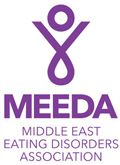and is also rooted in our obsession with health.
Starting my coaching practice and this blog made me realise there were strong parallels to be drawn for me personally between acne and chronic dieting. Indeed, my adult acne triggered a relapse into disordered eating, and the narrative used typically around acne and health served as the ground to many of the food fears I had developed overtime.
As I sat with this idea, it occurred to me there could be many more links to draw between skin and weight stigma. I thought it’d be interesting to delve into this a bit further, and to take you on this journey with me. I take acne as my reference, but results are probably easily transferable to other skin conditions including eczema, psoriasis, vitiligo, etc.
First, let’s go back to the beginning and ask ourselves: what is weight stigma? The US-based ‘National Eating Disorders Association’ provides us with this definition:
“Weight stigma, also known as weight bias or weight-based discrimination, is discrimination or stereotyping based on a person’s weight. Weight stigma can increase body dissatisfaction, a leading risk factor in the development of eating disorders. The best-known environmental contributor to the development of eating disorders is the sociocultural idealization of thinness.
Despite its unfortunate prevalence, weight stigma is dangerous and can increase the risk for adverse psychological and behavioral issues, including depression, poor body image and binge eating.”[i]
From there, can we draw parallels with the impact of skin conditions (in yellow boxes below) or weight (in aqua boxes) on someone’s overall physical and mental health?
1. Both stigmas lead to discrimination, public shaming and constant unsolicited advice. When internalised, this discrimination leads to body dissatisfaction and a feeling of personal failure.
Weight
As early as 2001, researchers assessed that clear and consistent weight stigmatization, and in some cases discrimination, can be documented in three important areas of living: employment, education, and health care. At the time, there are also suggestions of discrimination occurring in adoption proceedings, jury selection, housing, and other areas.[ii] These will be proven right with time.
Skin
In 2016, the British Skin Foundation research found that nearly 60 per cent of acne sufferers experienced verbal abuse because of their condition.
2. Both stigmas are rooted in a culture worshipping unattainable ideals, driven by our newfound obsession with health (and capitalistic considerations)
Weight stigma occurs when society worships thinness above all other considerations and associates it with health and morality, oppressing people into dieting, despite it having no proven long-lasting positive impact on health[iii]. This feeds a global weight management industry expected to grow up to USD 279 billion a year by 2023[iv]
In a global cosmetic products market expected to reach USD 863 Billion by 2024[v], health and beauty are still rarely considered outside of the white, perfect skin ideal. Marketing campaigns typically only feature heavily computer retouched images of skin that appears poreless and never features ANY signs of aging, discolouration or blemishes. This standard is now enthusiastically adopted by customers through the use of social media filtering. When confronted with reality, there can only be a sense of disappointment with what one experiences when reflected in their bathroom mirror, and, in some cases, it also creates a deep sense of inadequacy. It is then easy to become prey to the (wildly unaccounted for) claims of the skincare industry promising miracle solutions in a bottle. At the end of last year, beauty blogger Em Ford partnered with Vincent Walsh, a Professor of Human Brain Research at University College London, to prove that the ‘beauty standards’ portrayed by the beauty industry are having a damaging impact on mental health and the way we feel about ourselves. (see the complete video here)
3. Both stigmas are dangerous and increase the risk for adverse psychological and behavorial issues including poor body image/ trauma / PTSD / depression
In a 2018 study, researchers found that acne sufferers that reported higher perceived stigma also reported greater health-related quality of life impairment, higher psychological distress levels and more somatic symptoms.[vii] Another widespread study (over a million men and women in the UK followed for a 15 year stretch) in the British Journal of Dermatology in 2018 concluded that the probability of developing major depression was 18.5 percent among patients with acne and 12 percent in those without. The risk was highest in the first year, when there was a 63 percent increased risk of depression in a person with acne compared to someone without.[viii]
Wow, this was pretty revealing, wasn’t it? Let’s sit with it for a while, and reflect on what we can all do to relieve some of that stigma. First, what this shows is that the problem is not your weight or your skin, or your inability to make it ‘perfect’, but the cultural values constantly shared about appearance and health. Thanks to the tireless work of fat & body positive activists, we already can connect to great resources for accepting our weight and body at whatever size, and we know that health is SO NOT a number on the scale (see more of these resources here). It is also possible to reprogram your thoughts to live better in your skin, just as it is today. Watch this space for a follow-up post with concrete actions you could take towards more skin acceptance, for yourself or the wider community.
In the meantime, do let me know your thoughts on the above and feel free to go check out my list of skin positivity influencers here. Take care x
[i] https://www.nationaleatingdisorders.org/weight-stigma
[ii] Obes Res. 2001 Dec;9(12):788-805. Bias, discrimination, and obesity. Puhl R1, Brownell KD.
[iii] https://christyharrison.com/blog/what-is-diet-culture
[iv] Orbis Media
[v] Zion Market Research
[vi] Impact of weight stigma on physiological and psychological health outcomes for overweight and obese adults: A systematic review, Ya?Ke Wu Diane C. Berry, 23 November 2017
[vii] Stigma predicts health-related quality of life impairment, psychological distress, and somatic symptoms in acne sufferers. Jamie Davern, Aisling T. O’Donnell. Published: September 28, 2018
[viii] Vallerand, Isabelle & Lewinson, Ryan & Parsons, Laurie & Lowerison, Mark & Frolkis, Alex & Kaplan, G.G. & Barnabe, Cheryl & Bulloch, Andrew & Patten, Scott. (2018). Risk of depression among patients with acne in the U.K.: A population-based cohort study. British Journal of Dermatology. 178. 10.1111/bjd.16099.





[…] not an easy situation to manage, especially if you’re well past the teenager stage. (More about skin stigma here) A lot of the information out there suggests cutting foods out of your diet, but research shows […]